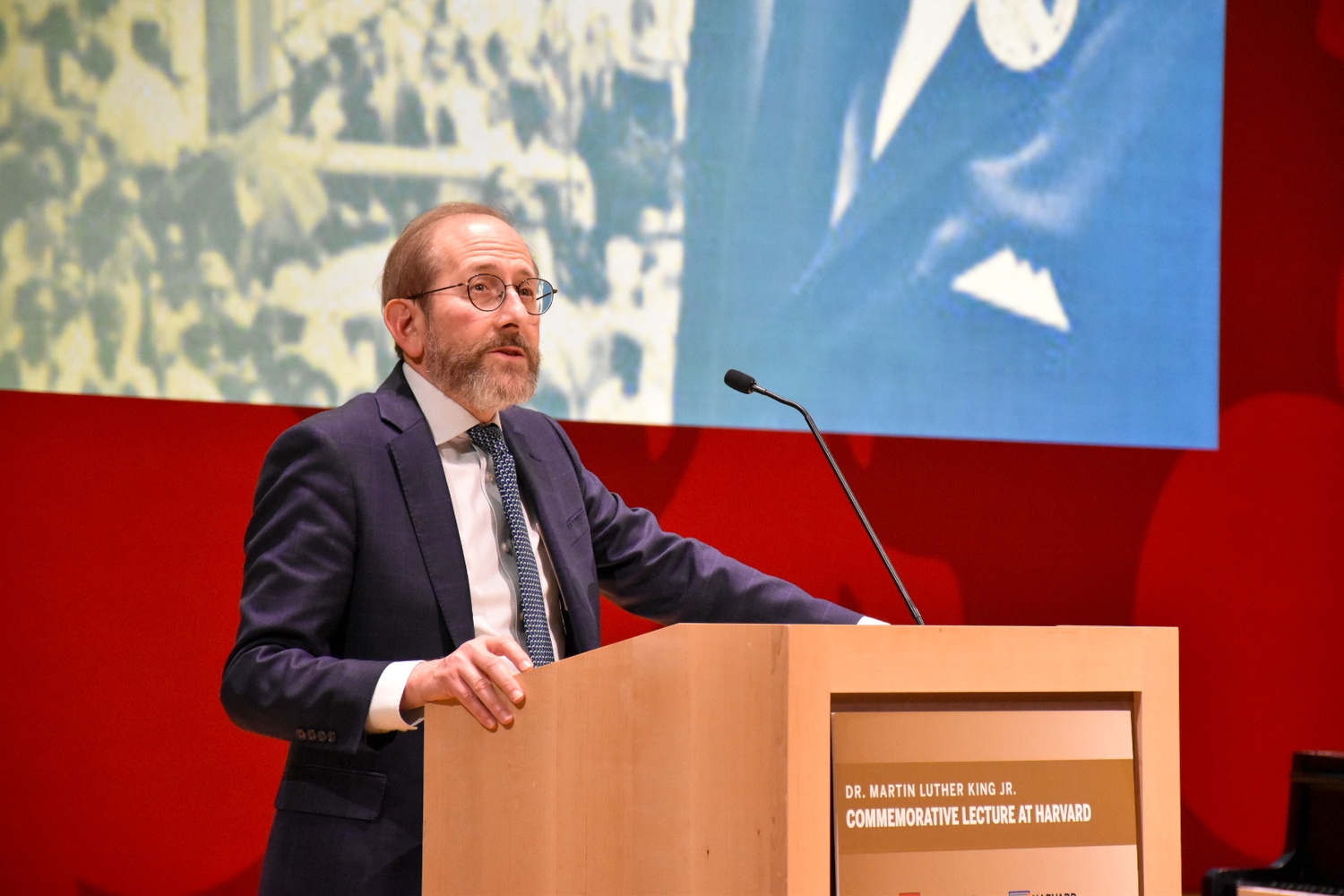
News
Summers Will Not Finish Semester of Teaching as Harvard Investigates Epstein Ties

News
Harvard College Students Report Favoring Divestment from Israel in HUA Survey

News
‘He Should Resign’: Harvard Undergrads Take Hard Line Against Summers Over Epstein Scandal

News
Harvard To Launch New Investigation Into Epstein’s Ties to Summers, Other University Affiliates

News
Harvard Students To Vote on Divestment From Israel in Inaugural HUA Election Survey
Garber Establishes Presidential Priorities Fund, Calls on Alumni to Back Harvard in Fight with Trump
Harvard’s fundraising pitch arrived in donor inboxes as researchers face more than 500 canceled grants.

Harvard President Alan M. Garber ’76 unveiled a new Presidential Priorities Fund in a Monday email and called on alumni and donors to throw their financial and political support behind the University as it tackles multibillion dollar cuts to research funding.
In the email, Garber asked the Harvard community to “stay informed,” “advocate for Harvard and higher education,” and contribute to the newly established fund, which will provide his office with “flexible support” for the University to sustain research and teaching.
“The institution entrusted to us now faces challenges unlike any others in our long history,” Garber wrote.
On Monday night, hours after Garber sent his call for support, the Department of Health and Human Services slashed an additional $60 million in multi-year grants to Harvard — on top of more than $2.6 billion in existing cuts.
Garber’s push for donations is just one part of the University’s strategy in a protracted stalemate with the Trump administration, which has issued several sweeping cuts to federal research support in response to the University’s defiance of the administration’s demands.
Harvard is suing 11 federal agencies involved in the cuts, alleging that the demands tied to the funding are unconstitutional and jeopardize the University’s independence.
The new Presidential Priorities Fund and the Presidential Fund for Research will allow Garber’s office to address “pressing needs” and shortfalls to projects resulting from the funding cuts, according to the Harvard Alumni Association website.
The University also emphasized the importance of supporting Harvard with discretionary funding, both to the presidential funds and individual school deans. This discretionary power, Garber wrote, would afford Harvard the flexibility “to meet emerging needs across the University.”
Last Thursday, hundreds of Harvard researchers received termination notices for federally funded research projects, as most of Harvard’s grants were cut, hitting scientific research especially hard.
“I am grateful to everyone who stands with Harvard as we continue to pursue our mission, drive progress, and serve the public good,” Garber wrote. “Now is the time to speak up and lend your support to institutions that have contributed so much to our nation and our world.”
Alumni and donors were also encouraged to contact elected officials and share personal stories of Harvard’s impact and advocate for the role of higher education “as an engine of American progress and a force for good in people’s lives.”
While Garber encouraged alumni to give to their respective schools, he underscored the urgency of broader, unrestricted support.
Fundraising efforts have also begun at several individual schools. Harvard Medical School and the Harvard School of Public Health — among the schools hit hardest by the White House’s cuts to health research funding — are actively asking for donations through social media and alumni emails.
“Your support of Harvard Chan School matters now, more than ever,” the caption accompanying the post on HSPH’s official Instagram reads.
Researchers have been the face of Harvard’s publicity campaign, appearing in videos or sharing statements on Harvard’s social media accounts highlighting their work jeopardized by recent cuts.
HSPH Dean Andrea Baccarelli, in an email to alumni on Friday, requested donations and shared a “community toolkit” with key numbers and frequently asked questions to help alumni understand and communicate the scope of the impact. The toolkit website outlines the number of grants cut and the potential effects of further federal actions such as an endowment tax.
The federal government terminated around 350 research grants to Harvard Medical School last week and nearly all direct federal grants to HSPH, totaling more than 190. More than 130 scientists at HSPH have had their grants or contracts canceled.
Even active HSPH grants have stopped receiving reimbursements from the Department of Health and Human Services.
“Taxpayers aren’t sending blank checks to Harvard — they are effectively hiring our scientists to carry out vital health and medical research, like finding ways to reduce the risk of Alzheimer’s, stop cancerous cells from spreading, or slow biological aging,” the website reads.
—Staff writer Avani B. Rai can be reached at avani.rai@thecrimson.com. Follow her on X @avaniiiirai.
—Staff writer Saketh Sundar can be reached at saketh.sundar@thecrimson.com. Follow him on X @saketh_sundar.
Want to keep up with breaking news? Subscribe to our email newsletter.
